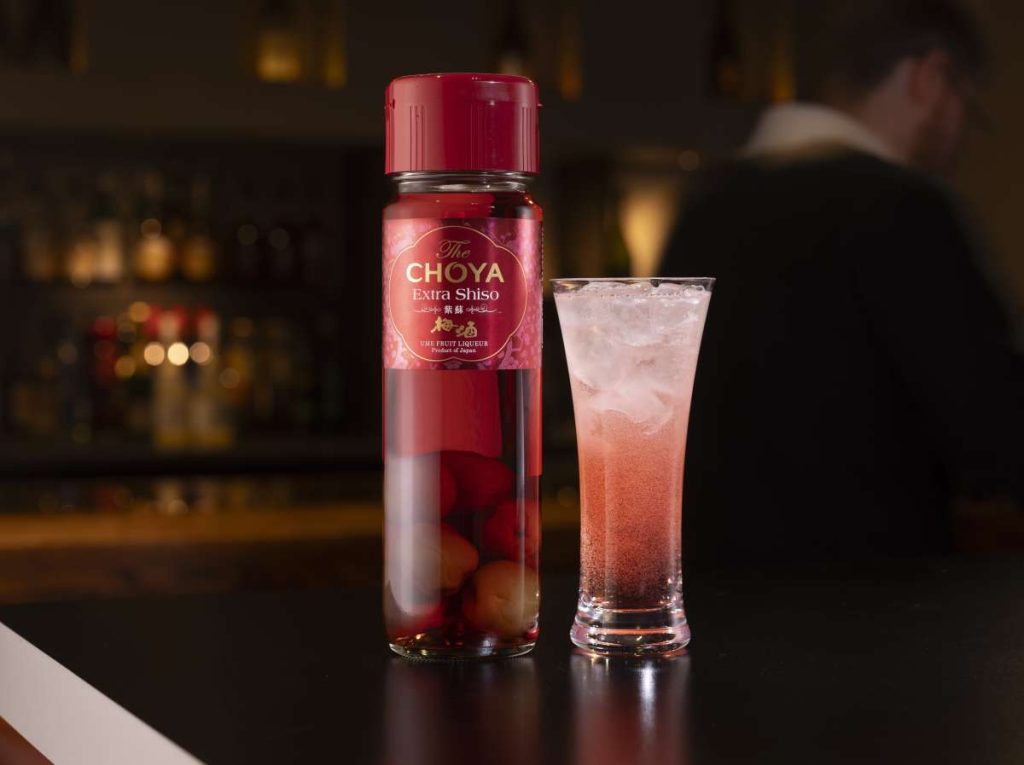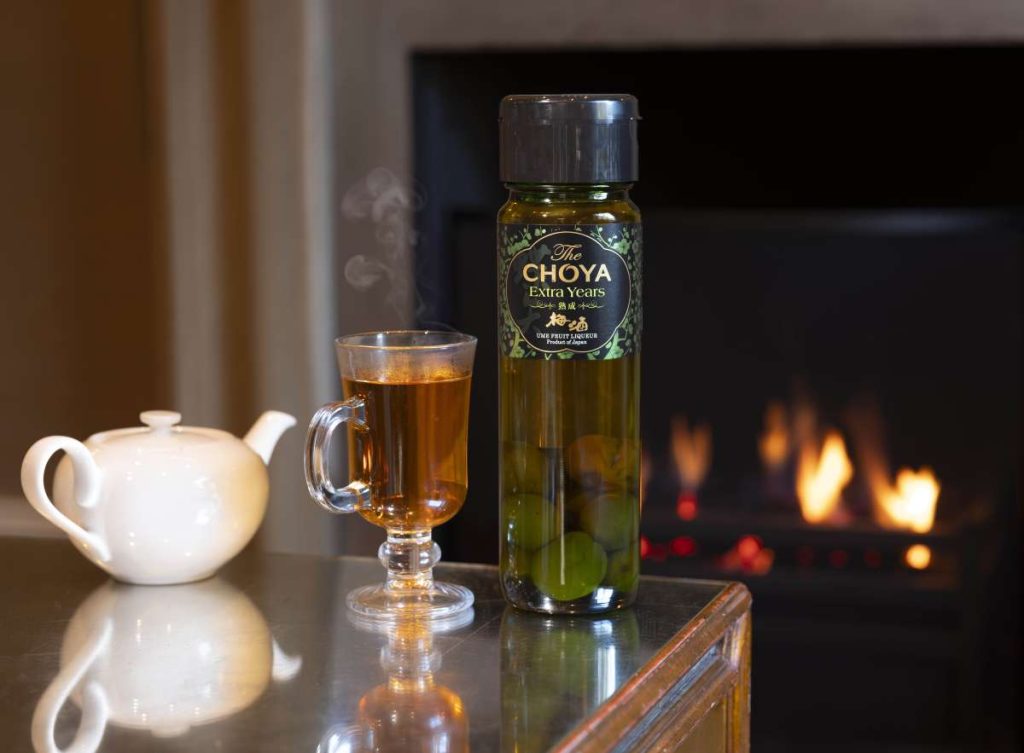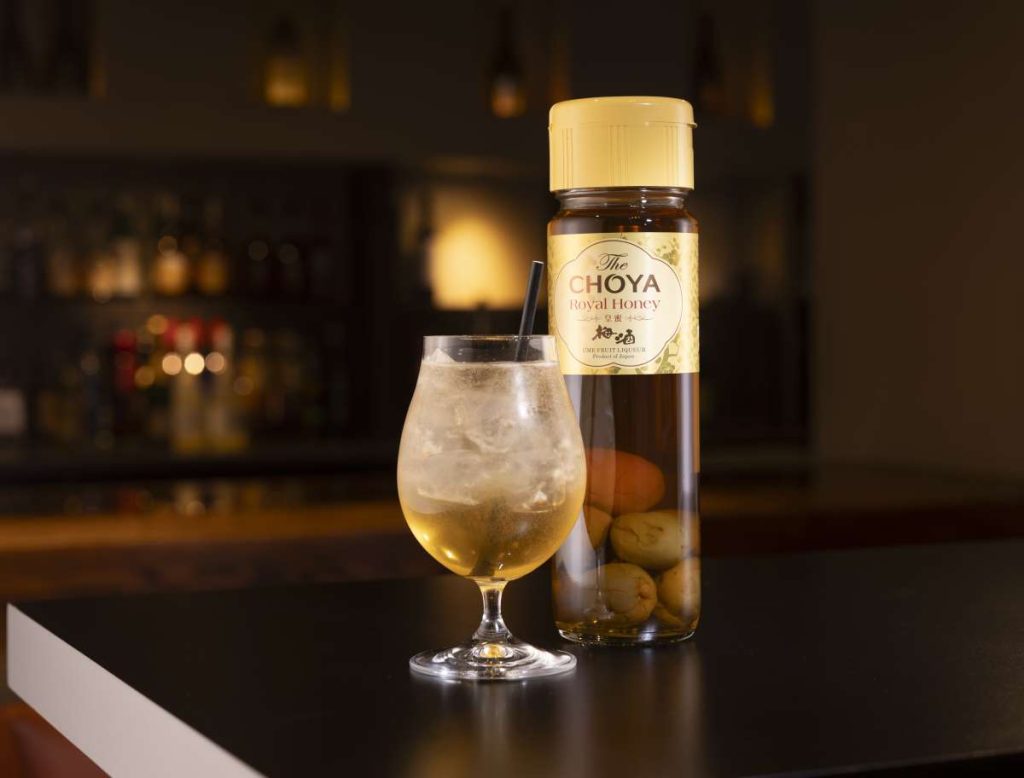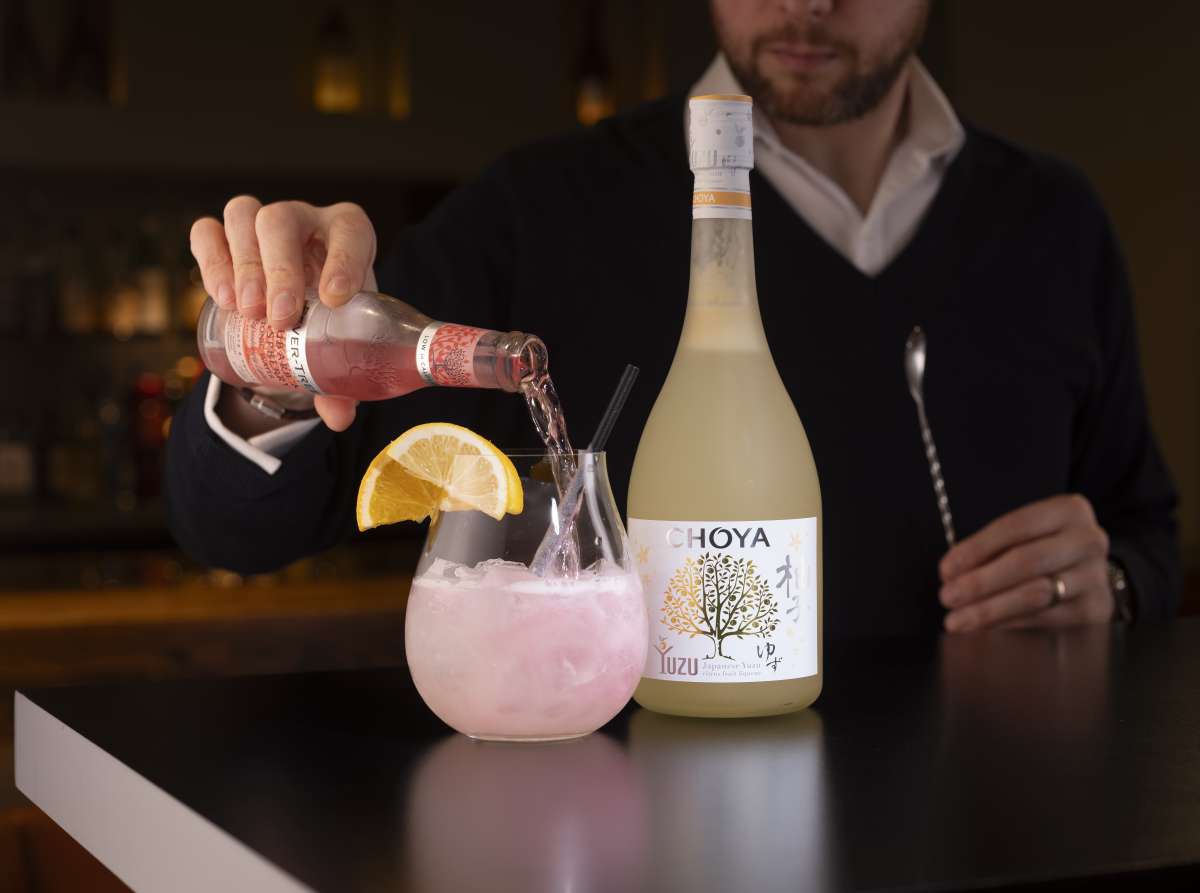Choya, made from Japan’s ume fruit, is a 100% natural, vegan-friendly liqueur. Sweet and tart, it’s enjoyed straight, on the rocks, or in cocktails. Founded by the Kondo family in 1914, Choya shifted from wine to Japanese beverages and is now the world’s 7th largest liqueur producer. A feature by columnist Riccha Grrover for Asian Lite International.
In 1959 the company started production of umeshu which at that time was produced individually by each family. Today Choya is responsible for the development of umeshu into a commercially viable product. It is a brand with countrywide recognition, available across the whole of Japan and exported to over 60 countries worldwide.
The brand took its name from the combination of a Japanese butterfly species called the Gifu Chõ founded in the Komagatani area near the company’s headquarters and artefacts from the Stone Age shaped like arrowheads (called ‘ya’ in Japanese) also found there. The dual honouring of nature and local community – a key mantra ever since – became the combination of the two and Choya was born.

Ume is often known as the Japanese plum and came to Japan from China over 2,000 years ago. It is a fruit that not only tastes delicious but also has a number of health benefits being rich in potassium, magnesium and fibre. The ume fruit has an acid content of 4-5%, much higher than that found in a plum. As the ume fruit ripens, the level of citrus acid in the fruit overtakes that of organic acids. The flesh and skin from the ume fruit also contain the antioxidant polyphenol and this also increases as the fruit matures. In addition the fruit contains multiple amino acids and other organic acids such as citric acid.

There are several hundred varieties of Japanese ume fruit but Choya uses only four different varieties. Nanko-ume from Wakayama is a premium variety with plump flesh and high acidity, making it particularly suitable for umeshu.
Umeshu is the fruity liqueur made from the unripened Japanese plums, ume. Choya Umeshu uses traditional harvesting methods with the ume harvested during the summer months and carefully washed and inspected before going though a process that is similar to making gin. The unripe ume plums are soaked in sugar and shochu (Japanese clear distilled spirit) which contains about 35 % alcohol. The plums are aged with their stone intact as this adds to the flavour which also comes from the skin and flesh.
Making umeshu takes at least six months before the final product is ready for consumption.
Experts recommend ageing past nine months for optimal flavour and Choya Umeshu is aged for a minimum of 12 months. The final product will have moderate acidity and a faint aroma from the plums. The sugar and ageing from the alcohol provides a pleasant sweetness sometimes compared to almonds or marzipan.

CHOYA PRODUCTS
Choya Extra Years Aged Umeshu – a premium Umeshu made with the finest grade Nanko-ume fruit, harvested in the Wakayama region of Japan. This fruit liqueur is well balanced, sweet and slightly vicious.
Choya Single Years Umeshu – a blend of at least three ume liqueurs aged between one and two years. It is rich, aromatic and surprisingly fresh.
Choya Royal Honey Umeshu – Choya Umemshu Extra Years can be made with Royal Honey which imparts additional sweetness and a darker vanilla colour which is completely natural. It is perfect enjoyed on the rocks or with soda to release the honey flavour.
Choya Yuzu Fruit Liqueur – a sweet tasting liqueur made with the filtered pulp of the Yuzu fruit, similar in size to a grapefruit and ume fruit. A delicious citrus drink it is a classic alternative to Pimms, Summer Pitchers or great in cocktails.
Choya Ume Salut Sparkling Wine – a crisp and refreshing blend of Italian wine blended with Choya’s exotic sparkling plum wine. A wonderful marriage of Japanese and Italian wines, best enjoyed chilled as an aperitif or with your favourite food.
ALSO READ: G7 highlights AI’s impact on cultural sector

